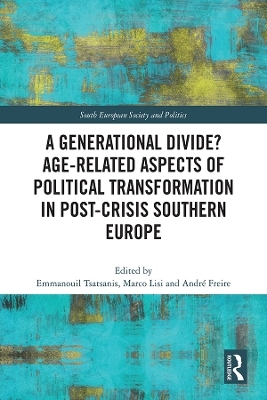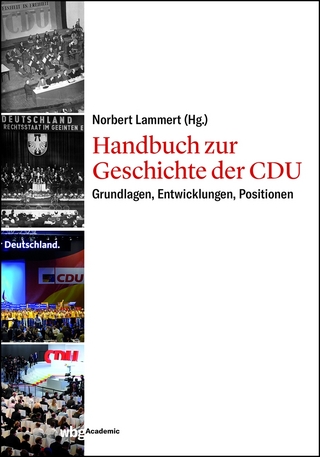
A Generational Divide? Age-related Aspects of Political Transformation in Post-crisis Southern Europe
Routledge (Verlag)
978-1-032-34639-7 (ISBN)
This book examines the political consequences of the economic crisis in Southern Europe from the perspective of a widening intergenerational divide. It focuses on the cases of Greece, Italy, Portugal and Spain to fill the gap in the literature by examining various age-related rifts in post-crisis Southern Europe.
Public discussion about the economic crisis of the late 2000s to mid-2010s in Southern Europe often refers to its impact on the region’s younger citizens, but not enough attention has been given to the political consequences of the crisis on the young. The comparative studies in the volume cover various thematic areas, such as electoral behaviour, political culture, democratic values, forms of political engagement and political representation.
The overarching questions that the book attempts to answer are: a) to what extent and in what areas can one talk about an emergent generational divide in the region, and b) has the experience of the economic crisis been profound enough for young South Europeans to create a new ‘crisis political generation’? Many of the answers offered point to tangible effects of the crisis, but mostly in the sense of accentuating dynamics that already existed.
The chapters in this book were originally published as a special issue of South European Society and Politics.
Emmanouil Tsatsanis is Researcher at the Greek National Centre for Social Research (EKKE) and at the Hellenic Foundation for European and Foreign Policy (ELIAMEP). His research focuses on electoral behaviour, political identities, political representation, and party systems. He is coeditor of the volumes Political Representation in Southern Europe and Latin America (Routledge, 2020) and Political Representation and Citizenship in Portugal: From Crisis to Renewal. Marco Lisi is Associate Professor in the Department of Political Science at Nova University of Lisbon and Researcher at IPRI-NOVA. His research interests focus on political parties, electoral behaviour, democratic theory, political representation and election campaigns. He has published several articles in national and international journals. He recently edited Party System Change, the European Crisis and the State of Democracy (Routledge, 2019). André Freire is Professor of Political Science (PS) at ISCTE-University Institute of Lisbon, where he is also Director of the PhD in PS (2015-present) and of the Bachelor in PS (2009-2015). He is the Director of the Observatory for Democracy and Political Representation, and of the Research Line IV, Politics and Citizenship, both at CIES-ISCTE. He has directed several research projects on ideology, electoral behaviour, institutions, political reforms, as well as political representation and has published around 30 books and 100 articles.
Introduction - The ‘Lost Generation’ and Its Political Discontents: Age-related Divides in Southern Europe after the Crisis 1. Trust, Satisfaction and Political Engagement during Economic Crisis: Young Citizens in Southern Europe 2. Has the Great Recession Shaped a Crisis Generation of Critical Citizens? Evidence from Southern Europe 3. Generational and Ideological Gaps in Democratic Support: Seeds of Deconsolidation in Post-Crisis Southern Europe? 4. Assessing the Impact of Age, Cohort and Period Effects on Partisanship and Support for Mainstream Parties: Evidence from Southern Europe 5. Age and Descriptive Representation in Southern Europe: The Impact of the Great Recession on National Parliaments
| Erscheinungsdatum | 24.04.2024 |
|---|---|
| Reihe/Serie | South European Society and Politics |
| Verlagsort | London |
| Sprache | englisch |
| Maße | 174 x 246 mm |
| Gewicht | 453 g |
| Themenwelt | Sozialwissenschaften ► Politik / Verwaltung |
| ISBN-10 | 1-032-34639-6 / 1032346396 |
| ISBN-13 | 978-1-032-34639-7 / 9781032346397 |
| Zustand | Neuware |
| Haben Sie eine Frage zum Produkt? |
aus dem Bereich


